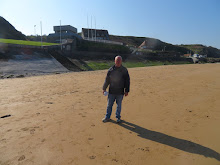Books. My house is filled with more books than I could read before I die. Is that a bad or a good problem to have? And my friends want me to use my Kindle and start queuing up electronic books. Naw. Paper works just fine.
This year I read 18 books. It could have been more but I'm currently mired down in a biography of Winston Churchill during the war years. I'm going to finish it--he was a great man--but I'm juggling library returns of the volume between the Arlington and Falls Church systems as I read about 10 pages a night. Anyway, that leaves choosing my top dozen books of the year more like deciding what half-dozen do I discard. How many books did you read this year?
In order of importance to me:
1. A Tale of Two Cities by Charles Dickens. I read this in 9th grade but that was decades ago. Perhaps then it was my opening into what a rich world adult reading was. I never forgot the open and the close (I'm paraphrasing)--It was the best of times, the worst of times…It is a far, far better thing that I do than I have ever done. I just didn't remember much in between. What a fabulous book. I also think it's prescient for the ultra rich in America as they unconcernedly allow societal inequities to become ever more prominent.
2. Woodrow Wilson: Revolution, War, and Peace by Arthur Link. Almost a great president, but not quite. Am interesting time in America as we slumbered and almost awoke to our world-wide responsibilities one generation before we actually did. Wilson was a pedantic, smarter always than anyone else in the room, who didn't listen to anyone in that room. He promulgated the 14 points which have caused trouble even down to today, most specifically about the right of national self-determination. Think Scotland and England, or Quebec and the rest of English-speaking Canada. The British Prime Minister during the peace treaty negotiations to end WWI sniffed that the almighty Lord had ten commandments and Wilson had fourteen.
3. Walkabout by James Vance Marshall. A tale of 2 city children surviving in the outback of Australia after a plane crash, with the help of an Aboriginal boy on his walkabout, a coming of age solitary trek for a male reaching puberty. It doesn't go well for the native boy despite, or perhaps because of, his concern for others.
4. John Paul Jones by Samuel Eliot Morison. This biography won the 1959 Pulitzer Prize, one of two Morison won. His short volume, The Two Ocean War, is an excellent summation of America's naval war during WWII.
5. Lincoln and His Generals by T. Harry Williams. A little dated (c1952) but interesting expositions on McClellan, Pope, Meade, Grant and the other eastern theatre Civil War generals.
6. The American Revolution by Bruce Lancaster. Part of the American Heritage survey of America's wars, an interesting read on how and why one third of the colonists managed to create a new nation (one third pretty much remained neutral and the other third was pro-crown and decamped to Canada when the Americans won, without their property mostly). Think George Washington.
7. Japan's War by Edwin Hoyt. A long slow slog through how Japan rose to militarism in the twenties and thirties and were at war years before the Germans invaded Poland to "start" WWII. An unwinnable war, a developed country trying to pacify China. Think Vietnam.
8. The Food of the Gods by H.G. Wells. Not his best work, but I enjoy the writing of Wells.
9. Glittering Misery: Dependants of the Indian Fighting Army by Patricia Y. Stallard. Life on the frontier inside of army forts for adult and children dependents of cavalrymen in the 1880s and 1890s. An interesting glimpse into the hard lives of boys and girls and wives of men on the point of the spear as Americans pursued its "manifest destiny."
10. Kesselring: The Making of the Luftwaffe by Kenneth Macksey. It would help if you knew that Kesselring was the German general who stymied the Allied advance in Italy during WWII for two years. He apparently commanded the Luftwaffe (Nazi air force) in the early good days for the Germans in WWII. Do you want to know why the Germans (Nazis) were so hard to beat? They had great technology and great generals, and Kesselring was one of the best.
11. Retribution: The Battle for Japan, 1944-45 by Max Hastings. Americans poured fire and brimstone upon the resolute Japanese during this period as they advanced across the Pacific, in retribution for the sneak attack on Pearl Harbor on December 7, 1941. We had to nuke 'em to make them quit. My Dad fought in this terrible conflict and surely would have died if we had had to invade Japan in 1945 and 1946. Does that tell you where I stand on the controversy about whether the Americans should have dropped the bombs, or were racist in doing so? (The Germans had already quit.)
12. Iwo and Tarawa by Richard Wheeler and Robert Sherwood. Two Pacific War battle books, tied for twelveth on my list, written a generation after the conflict (Iwo by Wheeler) and during the war (Tarawa by Sherwood who was there), two of the worst battles the Marines ever fought and won (did they ever lose a battle?) What did your daddy do during the war?
Sunday, December 28, 2014
Subscribe to:
Post Comments (Atom)

No comments:
Post a Comment